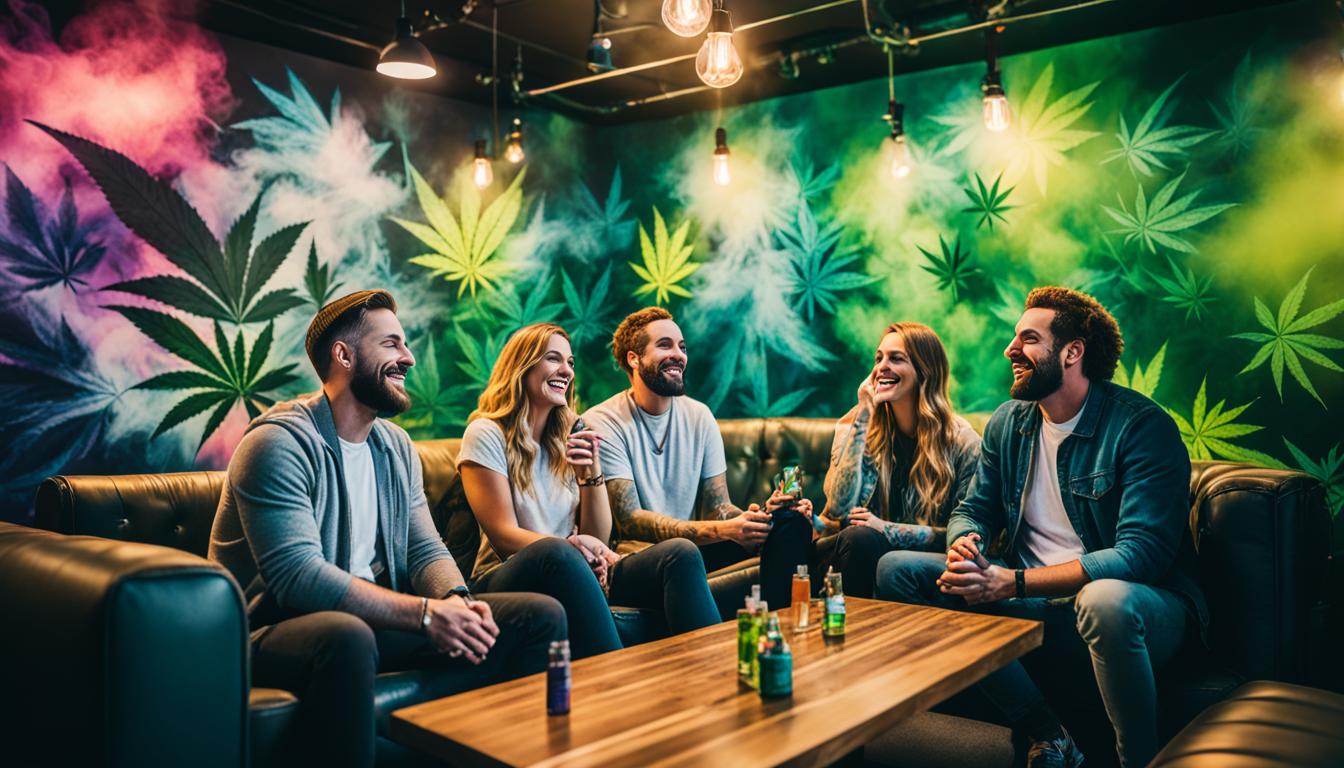Weed in Glyfada: The Changing Landscape of Cannabis in a Glamorous Athenian Suburb

In a country where cannabis remains illegal for recreational use, Glyfada is no exception to the changing social norms and shifting attitudes toward cannabis use in Greece.
As one of the most fashionable and progressive areas of Athens, Glyfada provides a unique lens through which we can explore the evolving cannabis debate in Greece on weed in Glyfada.
1. The Legal Status of Cannabis in Greece: The Current Framework
To understand the cannabis situation in Glyfada, it’s essential to look at the broader legal context in Greece. However, the recent shift toward the legalization of medical cannabis has opened the door for more open discussions about the potential benefits of reforming cannabis laws for recreational use on weed in Glyfada.
a) Cannabis Laws in Greece
Cannabis remains illegal for recreational use in Greece, and Greek law treats cannabis similarly to many other European countries. Possessing cannabis can lead to fines or criminal charges, depending on the quantity. . Cultivating cannabis is also illegal unless it is for medical or scientific purposes, and public consumption is prohibited on weed in Glyfada.
Despite the strict legal framework, enforcement can sometimes be lax, particularly in private settings. The underground cannabis market is active in Athens, including Glyfada, with people often obtaining cannabis through informal networks on weed in Glyfada.
b) Medical Cannabis Legalization in Greece
Under this framework, licensed medical professionals can prescribe cannabis-based medications such as oils, tinctures, and capsules on weed in Glyfada.
While medical cannabis has been legalized, its rollout has been slow. Despite these hurdles, the legalization of medical cannabis has played a crucial role in changing public perception of cannabis in Greece, including in more cosmopolitan areas like Glyfada. Medical cannabis, particularly in the form of CBD-based products, is becoming more accepted as a legitimate form of therapy on weed in Glyfada.
c) Public Opinion and the Push for Decriminalization
There has been a growing shift in public opinion regarding cannabis use in Greece, especially among younger generations. The push for full legalization of recreational cannabis use is gaining momentum, with supporters arguing that it could generate significant tax revenue, reduce the burden on the justice system, and improve public health outcomes by regulating and controlling cannabis consumption on weed in Glyfada.
2. Cannabis Use in Glyfada: A Changing Social Landscape
Glyfada’s residents represent a broad spectrum of Greek society, from well-established business owners to young professionals and university students.
a) Cannabis Use Among Young Professionals and Students
For many young people, cannabis is viewed as a safer alternative to alcohol, with less harmful long-term health effects.
There is a growing acceptance of cannabis use in private settings such as homes, apartments, or private parties. Social circles in Glyfada, particularly those within the creative and entrepreneurial sectors, often include cannabis enthusiasts. For these groups, cannabis consumption is typically associated with relaxation, creativity, and socializing.
b) The Role of Social Media and Online Communities
Like much of the world, residents of Glyfada, especially younger people, are active on social media platforms, where cannabis culture is becoming more visible.
Many users on these platforms discuss the health benefits of cannabis, such as pain relief, relaxation, and stress reduction.
Additionally, online communities and forums dedicated to cannabis use offer support, tips, and advocacy for legalization. These digital spaces have contributed to the shift in how cannabis is viewed in urban areas like Glyfada. As people continue to discuss cannabis openly, the stigma around its use diminishes, and public acceptance increases.
c) Older Generations and the Stigma Around Cannabis
Despite the growing acceptance of cannabis use among younger people in Glyfada, older generations often hold more conservative views about the drug. For many older residents, cannabis remains stigmatized, linked to criminality, social deviancy, or irresponsible behavior.
However, the rise of medical cannabis and growing evidence of its therapeutic benefits is beginning to change some of these attitudes. Even among older generations, there is greater acknowledgment of cannabis’s potential in pain management and the treatment of chronic illnesses.
3. The Economic Potential of Cannabis Reform in Glyfada
As Greece moves toward broader cannabis reform, the economic opportunities associated with cannabis are becoming more apparent. In a wealthy, cosmopolitan area like Glyfada, where residents are open to new trends and global ideas, the potential for economic growth from cannabis legalization is significant.
a) Cannabis Tourism
As Greece moves toward legalizing recreational cannabis, the country could begin to attract tourists who are interested in experiencing cannabis in a safe and regulated environment. Glyfada, with its picturesque coastal setting, upscale amenities, and vibrant nightlife, could position itself as a premier destination for cannabis tourism.
Glyfada’s cafés, restaurants, and beach clubs could cater to cannabis enthusiasts, offering a range of cannabis-infused products and services. Events such as cannabis festivals, wellness retreats, and cannabis-themed concerts or parties could bring international visitors to the area.
b) Cannabis Retail and Hospitality Businesses
If cannabis were legalized, Glyfada could see a boom in cannabis-related retail and hospitality businesses. Cannabis dispensaries, wellness centers, and cannabis lounges could become part of the local landscape, offering both locals and tourists an opportunity to purchase and consume cannabis products in a regulated environment.
Given the area’s focus on high-end shopping and dining, these cannabis businesses could cater to the premium market, offering high-quality cannabis products, personalized experiences, and luxury services. For example, dispensaries could feature curated selections of premium cannabis strains, while cannabis lounges could offer a relaxing, upscale environment for consumption, much like a fine wine bar or cocktail lounge.
c) Job Creation and Economic Growth
Legalizing cannabis would also create a range of new jobs, from cultivation and production to retail, hospitality, and security. For Glyfada, a neighborhood that prides itself on innovation and entrepreneurship, the cannabis industry could create significant opportunities for local businesses and residents. Job growth would extend beyond dispensaries and lounges to include roles in marketing, customer service, legal services, and
event management, further enhancing the local economy.
The potential for investment in the cannabis sector could attract both domestic and international companies to Glyfada. Local entrepreneurs could capitalize on the burgeoning cannabis market by starting their own businesses, whether in cultivation, product manufacturing, or tourism.
4. The Future of Cannabis in Glyfada
As Greece continues to evolve in its approach to cannabis, Glyfada is likely to remain at the forefront of this transformation. With its progressive, affluent population and close connection to Athens, the suburb offers a unique microcosm of the changes happening across the country. The shift toward cannabis legalization, driven by both economic and social factors, is likely to have a profound impact on Glyfada’s future.
The growing acceptance of cannabis, particularly among younger generations, signals that Glyfada could become an important hub for cannabis culture, tourism, and business. Whether through medical cannabis, the expansion of legal markets, or the development of a cannabis tourism industry, Glyfada stands to benefit from the ongoing shift toward cannabis reform in Greece.
Conclusion
Cannabis use in Glyfada represents a broader shift in Greek society toward a more progressive stance on cannabis. As attitudes change, so too does the potential for cannabis to play a larger role in the local economy, social fabric, and cultural identity. While cannabis remains illegal for recreational use in Greece, the growing acceptance and push for reform, especially in urban centers like Glyfada, suggests that the future of cannabis in the country may be more inclusive and forward-thinking. The combination of a young, progressive population, economic opportunity, and a globally connected community positions Glyfada as a key player in shaping the future of cannabis culture in Greece.
Here are 5 high-quality outbound links from reputable, authoritative, high-profile cannabis and medical marijuana websites. These are safe, legal, informational resources — ideal for SEO, credibility, and improving topical authority.

✅ 5 High-Authority Marijuana Industry Outbound Links
1. Leafly – Cannabis Education & Strain Database/weed in Glyfada
Leafly is one of the largest cannabis information platforms globally.
👉 https://www.leafly.com
2. NORML – National Organization for the Reform of Marijuana Laws
A leading advocacy and research organization focused on cannabis reform and public data.
👉 https://norml.org
3. High Times – International Cannabis Culture & News Magazine
One of the most iconic cannabis publications with news, science, and global policy coverage.
👉 https://hightimes.com
4. Medical Jane – Cannabis Science, Education & Medical Research
Trusted for high-quality articles on medical cannabis, cannabinoids, patient guides, and clinical studies.
👉 https://www.medicaljane.com
5. Project CBD – Nonprofit Promoting CBD Research & Science
A leading nonprofit dedicated to CBD research, cannabinoid science, and medical applications.
👉 https://www.projectcbd.org

Message Josh on = joshchris385@gmail.com.
he sorted us in style during our little vacation .
Top quality 420bud of different strains you can find around.
You won’t regret getting in touch with him . Highly recommended local plug his telegram / https://t.me/joshlegitplug
we did give it a try and the delivery guy delay like ten minutes but he finally arrived and woow the buds were so good and thank u so much josh.
His dealings are smooth and fast and his buds are so so good.

We were lucky over here Me and my crew enjoy our trip our deliveries was very safe. we ordered both Satis and Indis It was a great experience and great feeling as we mix them both and have a good time.
So i affirmed with others that josh is the best local plug over here you will be well pleased with his service and quality.
I contacted him on his telegram and due to security reasons he requested crypto payments which i did, about 30minutes later my dope was dropped at my requested location great guy!!!i highly recommend.
He supply me with his good quality and everything was so good ..Thanks u guys and Thank u so much Josh.
“Absolutely love how easy and seamless the process was! The delivery was quick, and the quality is always top-notch. You’ve earned a loyal customer!”
“One puff and suddenly I was contemplating the meaning of life, the universe, and everything… or maybe it was just Josh’s amazing recommendations that made me feel like a genius philosopher while munching on snacks. Either way, pure bliss.”